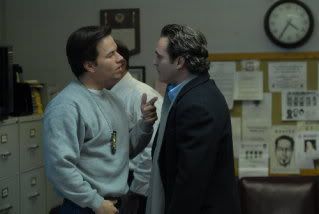 And now, the thrilling conclusion of that epic list of runners-up for my Top Ten Films of the Decade. (If you’re just joining us, you really should check out parts one, two, three and four.)
And now, the thrilling conclusion of that epic list of runners-up for my Top Ten Films of the Decade. (If you’re just joining us, you really should check out parts one, two, three and four.)
“Stranger Than Fiction”: This is the movie that keeps me from dismissing Marc Forster as a useless hack. Yes, I know: Zach Helm should be buying Charlie Kaufman lunch for the rest of his life, and any goodwill created by this screenplay was immediately undone by his writing and directing of “Mr. Magorium’s Wonder Emporium”. But even so, this is the only one of the Kaufman riffs that attains its own life-force — and the ending isn’t as much of a compromise as you’d think. (Apology to pedants: Alphabetically speaking, this should have gone in yesterday’s post, before “Summer Hours”, but I screwed up the original file.)
“Superman Returns”: Bryan Singer’s thoughtful, mournful Superman movie plays best as a thought experiment: What if someone made an utterly faithful sequel to the version of “Superman II” that Richard Donner was never able to complete? This is that film, and aside from the flawed casting of Kate Bosworth as Lois Lane, it’s pretty much perfect. A quarter-century too late, but perfect all the same.
“Sympathy for Lady Vengeance”: Sure, “Oldboy” is great fun, but for the final chapter in his vengeance trilogy, Park Chan-wook ascends from pulp fiction to grand drama with a tale of buried suffering and hard-won redemption. Also featuring the funniest axe joke of the decade.
“Synecdoche, New York”: Michel Gondry’s hopeful romanticism made “Eternal Sunshine of the Spotless Mind” a transcendent experience; in his directorial debut, Charlie Kaufman removes that fragile shred of optimism entirely, plunging Philip Seymour Hoffman’s neurotic theatre director straight into misery, decay and the abyss. And somehow, it’s nearly as transcendent.
“Time of the Wolf”: In a decade of apocalyptic visions, Michael Haneke’s unshowy study of a family struggling to make its way across a dying European landscape burrowed deeper into my own anxieties than any other. (Well, except for the ones with zombies.) There’s none of Cormac McCarthy’s stark poetry here, just horrible pragmatism and despair. I can identify with that.
“Touching the Void”: Kevin MacDonald’s gripping documentary uses dramatic re-enactments to bring Joe Simpson and Simon Yates’ disastrous mountain-climbing trip to impossible life — and somehow doesn’t short-circuit the story’s breathless tension despite both having men narrating their experience to the camera, obviously alive and well. That’s some kind of art.
“24 Hour Party People” and “Tristram Shandy: A Cock and Bull Story”: In which the alchemical combination of Michael Winterbottom and Steve Coogan is demonstrated through the endlessly refracting, self-rerential lens of cultural commentary. One might think the centuries between Laurence Sterne’s watershed novel and Tony Wilson’s musical empire would pose more of an obstacle. One would be wrong.
“Unbreakable”: Wherein M. Night Shyamalan’s formal constructions and immense self-regard come together almost perfectly to form a Bergmanesque examination of comic-book heroes and villains. Bruce Willis gives one of his finest performances as a man who’s spent his entire life convincing himself he isn’t anything special; Samuel L. Jackson is over the top, but of course he would have to be.
“Waking Life”: Richard Linklater’s digitally rotoscoped fantasy is a lot of things — a trippy companion piece to “Slacker”, an alternate-reality sequel to “Before Sunrise”, a meditation on spirituality and a sideways confrontation with mortality — but it’s never any one of those things for very long, which is what makes it so engrossing and so repeatable. I dearly love “Before Sunset”, but this was his artistic accomplishment for the decade.
“We Own the Night”: James Gray’s third feature takes a very basic story — two brothers on opposite sides of the law — and explodes it from the inside out, subverting the cliches of the genre and pulling fantastic performances from Joaquin Phoenix, Mark Wahlberg, Robert Duvall and Eva Mendes. Why everyone ignored it for Sidney Lumet’s creaky, faux-tragic “Before the Devil Knows You’re Dead” continues to vex me.
“Y Tu Mama Tambien”: The Mexican revolution declared itself fully underway with Alfonso Cuaron’s festival smash, which turned a simple coming-of-age story into great cinema and introduced us to the powerhouse chemistry of Gael Garcia Bernal, Diego Luna and Maribel Verdu. And yeah, Bernal and Luna have long since squandered their promise, but it doesn’t matter. Their work here will be remembered long after “Rudo y Cursi” is consigned to the dustbin of cable.
… and to my considerable shock, that’s the entire list. Hope you’ve enjoyed following along, and now it’s time to turn back to the work I’ve been putting off all week. If you think I missed anything essential, don’t hesitate to comment below.
And I still think “Mulholland Dr.” is pants.
 News broke yesterday that Eric Rohmer had died. I’ve written a short appreciation for the NOW website, but honestly? John would have knocked something out in half the time with twice the impact — even if he didn’t like “My Night at Maud’s” as much as I do.
News broke yesterday that Eric Rohmer had died. I’ve written a short appreciation for the NOW website, but honestly? John would have knocked something out in half the time with twice the impact — even if he didn’t like “My Night at Maud’s” as much as I do. James Cameron’s “Avatar”
James Cameron’s “Avatar” 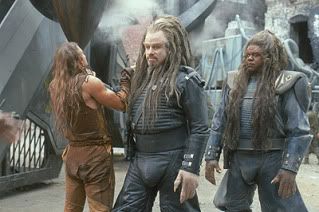 My latest
My latest 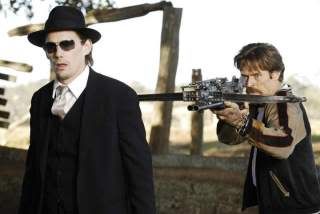 The first releases of 2010 trickle out today — sure, two of them premiered at TIFF last year, but you know what they say: If you haven’t seen it, it’s new to you!
The first releases of 2010 trickle out today — sure, two of them premiered at TIFF last year, but you know what they say: If you haven’t seen it, it’s new to you! It’s a new year and a new issue of NOW, but inside the movie section, you’d think it was last September all over again, what with my TIFF interviews with
It’s a new year and a new issue of NOW, but inside the movie section, you’d think it was last September all over again, what with my TIFF interviews with  My latest
My latest 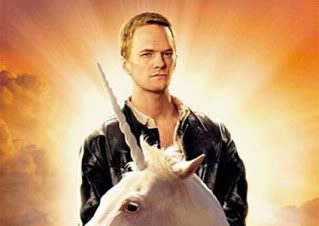 As we lurch forward into the glossier side of awards season — with critics’ associations giving way to glitzy Golden Globe and Oscar talk — Slate is keeping its dignity with this year’s edition of
As we lurch forward into the glossier side of awards season — with critics’ associations giving way to glitzy Golden Globe and Oscar talk — Slate is keeping its dignity with this year’s edition of 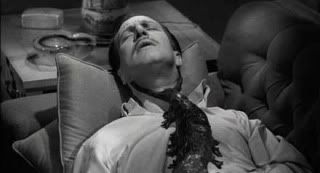 Sorry for the late post today; there still isn’t much news to report, other than that thing where
Sorry for the late post today; there still isn’t much news to report, other than that thing where  And now, the thrilling conclusion of that epic list of runners-up for my
And now, the thrilling conclusion of that epic list of runners-up for my 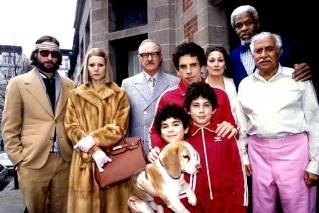 Holy crap, this is long. (Check out parts
Holy crap, this is long. (Check out parts